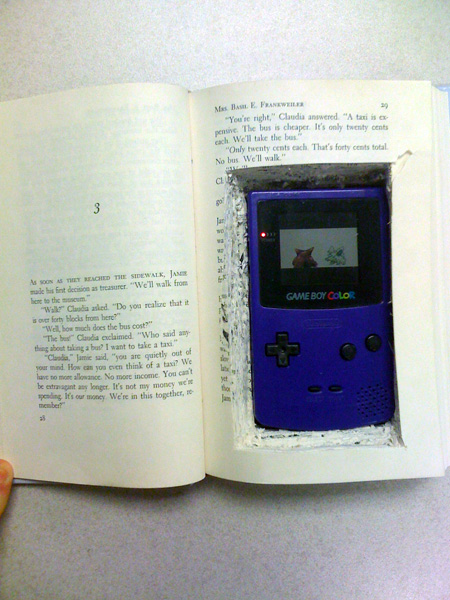CONTD FROM HERE…..15 KEYS TO HELP REDUCE STUDENTS’ RESTIVENESS AND YAWNS DURING LITERATURE CLASSES IN NIGERIAN SECONDARY SCHOOLS (10)
9.Ask students to read text out loud in class. Every student should read at least one paragraph from the book they are studying. Ask students questions about the material to have them illustrate their understanding of the book. Write questions on the board for other students to see and think about as they read.This was a very smart technique employed by our late Literature teacher at Christ’s school Ado-Ekiti,Mr S.A. Oloketuyi. We had no choice but to pay attention because he called our names randomly to read from where the last person stopped.And trust your colleagues to make fun of you if you missed your line!
10. One of the best ways to get students to learn Shakespeare is to have them perform the play that they are studying, be it as a full production with props or simply in front of the class or during a variety show or talent hunt performance before the whole school.This is also a good opportunity for students to understand that there is a lot of ambiguity in the staging of Shakespeare because of the scarcity of stage directions. For example, in “Hamlet,” there is a scene (Act III, Scene 1) where Hamlet asks Ophelia where her father is when he is hiding behind a curtain. How the students stage this reflects their interpretation of the text: Is Hamlet merely being paranoid, or does he slyly catch a hint that Polonious is there? Nearly every scene has an opportunity for interpretation of this nature. Almost every scene in a Shakespeare play is rife with ambiguities and tension (or, if it is a comedy, humor). You can have students break into groups or work as individuals to prepare a presentation that dissects a scene. The presentation can include their interpretations of any ambiguities, a clarification of difficult dialogue and how they would stage the scene.Do we really need to repeat that teaching literature is serious business?
11.As their school project, you can have students research the context of Elizabethan England, as well as common idioms and figures of speech as we did in Mason College Festac.It is important that the language be understood.
12.Enjoy the experience: If you are heading to class and you are dreading it or feeling like you ought to just turn back and go home, it is time to reschedule the class or postpone it. If you are not giving a class ‘your all’, the students will notice and it affects the environment of the classroom. Also, the students will probably like you more for the extra free time you’ve given to them.After all,one of the tenets of teaching should be that everything is in a constant state of change. Interruptions and disruptions are the norm and very few days are ‘typical’. Therefore, a flexible attitude is important not only for your stress level but also for your students who expect you to be in charge and take control of any situation.
13.Give appropriate homework. The students must be treated like adults, the homework should be appropriate and challenging. Be clear about how you like your papers to be written and make sure they follow a certain format. The best kind of homework is a variable kind. Also give them a good amount of unconventional homework like: an essay on the difficulties of a literature student, or writing a poem, or interpreting a fairy tale (there actually is a lot of symbolism in many African stories)
Emphasize references. No matter how creative the thought, it has to be backed up by quotes from the material. A student might have a particularly brilliant idea but if it is disproved by the material, the idea is worthless. Stress on the fact that every claim has to be supported by lines, verses and dialogue in the text.
14.Bring pictures to class if you can get any or any music that is relevant There are many paintings and illustrations of mythical creatures, heroes of literature and writers which can be copied from books. In the modern world,there is much more emphasis on the visual as compared to the written word. It would add a bit of interest to the classes and you can use them for comparison. For example, you could ask: “Is this illustration of ‘The Ball’ in Romeo and Juliet an accurate description of the text?”Using music to teach literature and life 101 was very common in Mason College.We do intend to devote another post to this particular subject in future.
15. Involve every single student: Each class has students that are not really interested in the material but come to class each day for unidentified reasons. As mentioned before each class a has students who monopolize conversations and centre discussions towards their opinions. Avoid the trap at all costs. Even the lazy students can usually provide some sort of input. Ask a lot of questions and give everyone an equal shot at answering. Don’tstand there and wait for an answer (You will be wasting precious minutes while the student goes: “Ummm….well….errr”).
Maintain an interest in each and every student. Students can usually tell if you like them or not or if you prefer one over the other. Avoid this too. Your job is to promote the imagination of all the students and to treat them all equally. Talk to all of them personally at least once.Recognize the students’ weaknesses and strengths: By giving them lost of opportunities to do various kinds of work (speaking, arguing, writing, interpreting, etc.) you can assess the weaknesses and strengths of each one. Praise each student on their strengths and talk to them about their weaknesses. Allow your students the freedom to choose the form they are more comfortable with. For example, if a student is good at verbal discussion and not good at written communication, you can allow for one of their assignments to be verbal. To be fair, however, you must give all students a chance to choose the form they are good at. Talk to the students personally about their weaknesses and how to improve them.




Pingback: 24 POINTERS FROM PAST EXAM PAPERS FOR INTERPRETING WHAT NIGERIAN LITERATURE EXAMINERS WANT! (13) | LAGOSBOOKSCLUB.WORDPRESS.COM
Pingback: GOOD NEWS TO LITERATURE STUDENTS IN NIGERIAN SECONDARY SCHOOLS!…WE HAVE PRODUCED A TABLE TO MAKE YOUR STUDIES EASIER…IT’S SIMPLE AND FREE! (14) | LAGOSBOOKSCLUB.WORDPRESS.COM
Pingback: PAST WAEC/NECO EXAM QUESTIONS IN ENGLISH LITERATURE…PAPER 2… (DRAMA AND POETRY) (AFRICAN AND NON-AFRICAN) (17) | LAGOSBOOKSCLUB.WORDPRESS.COM
Pingback: OLD STUDENTS WHOSE LIVES WERE TRULY TOUCHED ARE THE DIAMONDS IN THE ORNAMENTS OF A DEDICATED AND BLESSED TEACHER | LAGOSBOOKSCLUB.WORDPRESS.COM
Reblogged this on MILE2HERALD (NEWS AND TIPS).
LikeLike